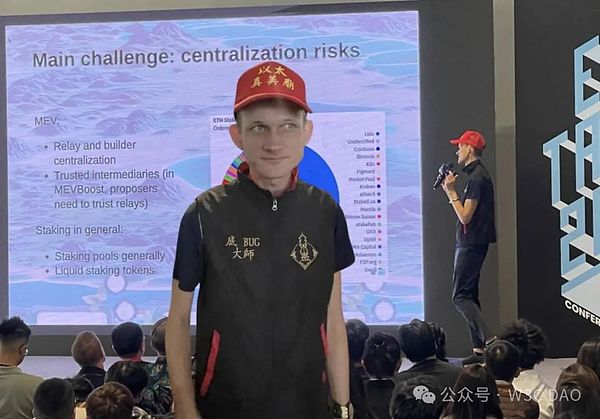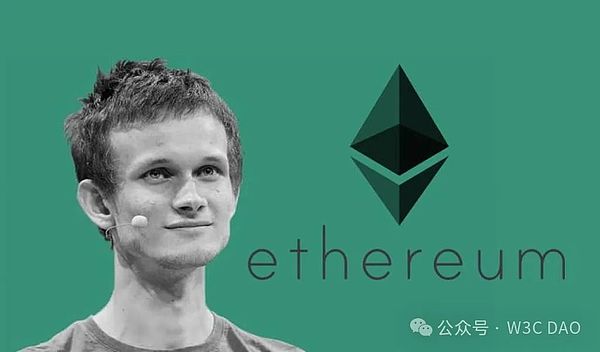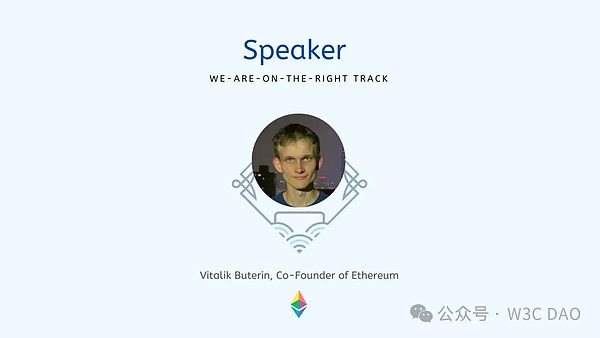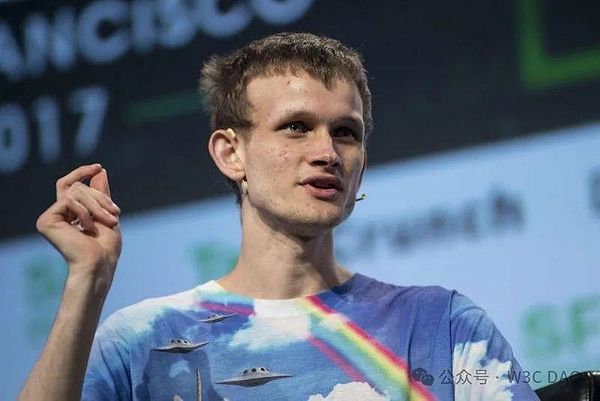Author: Karen, Kean; Source: Foresight News
Vitalik Buterin talked about the hurdles at the ETHTaipei 2024 conference Hot issues such as Kun upgrade, quantum computing threats, AI and cryptocurrency, Ethereum re-pledge, decentralized social networking, etc.

He proposed a new conceptual framework "Rainbow Staking", believing that decentralized social networking can solve the problem of network effects. He also talked about how Ethereum can deal with the threat of quantum computing and believes that combining AI with cryptocurrency can bring a variety of benefits. Re-staking is an interesting idea, but comes with risks. The cryptocurrency industry is likely to see more NFTs and Memes. New developers are advised to find a clear direction, actively participate in the community and make useful things.
At the ETHTaipei 2024 conference that opened today, Vitalik Buterin accepted interviews from a number of media and discussed the Cancun upgrade, response to potential quantum threats, AI & He shared his views on hot issues such as Crypto, Ethereum re-staking, and decentralized social networking, and made suggestions for non-native English speakers and new blockchain developers.
In addition, Vitalik Buterin also discussed the centralization risks of Ethereum staking and mentioned a new conceptual framework "Rainbow Staking".
The framework enables the integration of the right interfaces for further "protocol services" in a plug-and-play manner, targeting Minimum Viable Releases (MVIs) and combating dominance The emergence of LST to replace ETH as the currency of the Ethereum network; enhance the economic value of individual stakeholders by providing competitive participation in differentiated service categories; and help achieve SSF (Single Slot Finality).
The following is Vitalik Buterin's response to media questions:
Decentralization Social
It seems that you are more active on Farcaster than on Twitter, a decentralized social network like Farcaster Can applications really compete with Web2 social applications? Or can it subvert the social model?
Vitalik Buterin: Yeah, I think one of the interesting things about social is that it has network effects, but it also has anti-network effects. -network) effect. Twitter is a platform for all kinds of people, but it’s also a place for the really annoying people. I find that Farcaster has also accumulated enough users and is interesting enough that I can get higher quality interactions on this platform, although it still needs to be perfected.

I think that Twitter may differentiate between high-quality content and people, low-quality content and people, and many people criticize these mechanisms, including management and Blue V certification, thinking that they may become a centralized tool or Privilege, serving a particular point of view and a particular group.
The Crypto space, as well as many non-financial applications such as Ethereum, fundamentally solve this problem and try to solve these types of trust issues. Decentralized social networking can really solve this problem.
Another important feature about Farcaster is that it is not a server, but a shared platform.
So, in principle, you can use your own client, and your client can read or write the same content as all users on the network All can be seen.
I think this can definitely be a place for people to start experimenting with creating their own clients and adding interesting new features. For example, you could imagine people posting their own community notes on Farcaster, or posting various AI-based discussions or even predictions.
On Farcaster, you could imagine people creating their own mechanisms to identify high-reputation participants, low-reputation participants, etc. Different groups may use different approaches. All these things can be done by different clients.
Another thing that excites me is that I think the Farcaster application is very practical, smooth, and simple enough to use, and it is being used by some non-encrypted people use. I think this is something that many apps don't do, and it sets a template for other similar apps.
Dencun upgrade
How to upgrade Dencun Contributing to the Ethereum ecosystem? Is this upgrade better than expected?
Vitalik Buterin: The purpose of the Cancun upgrade is to significantly improve scalability and significantly reduce Layer2 (especially Rollups) transaction fees.
The upgrade does this by creating an independent data space within each block. This data cannot be accessed by the EVM. This is important because This also means that when clients validate an Ethereum block, they do not have to access that data at the same time.

We have seen a significant drop in Layer 2 fees over the past week, and again I need to remind everyone that these fees may increase again as users and transactions increase, but this is still It is a quite significant scalability improvement upgrade.
As for the second question, it depends on your understanding of "good". From a technical perspective, the upgrade is going well and is better than any previous fork. However, the usage is a bit low, the target is to include 3 blobs per chunk, but the average usage is only one blob. I think usage will increase over time, but right now it's really good news for Rollups as it's going to be very cheap, but I'm expecting usage to increase in the coming months.
Quantum Computing
What do you think about Ethereum? How to deal with the pressing question of the threat of quantum computing, and what impact will this have on the broader cryptocurrency ecosystem?
Vitalik Buterin: In terms of quantum computing threats, I think there are several aspects that need to be considered.
First of all, the Ethereum Foundation has realized the potential threats of quantum computing and will have some relevant standards and guidelines. From a technology perspective, we already have quantum-resistant algorithms for every area that is vulnerable to quantum attacks. For example, a quantum computer can break existing elliptic curve signatures, but we already have multiple quantum-resistant algorithms such as hash functions, Winternitz signatures, etc.
Another question is how to deal with the impact of quantum enablement on the entire cryptocurrency ecosystem. In this regard, we need to make the Ethereum consensus layer quantum-resistant. There will be some engineering challenges, as our current approach relies heavily on using efficient BLS signatures.
And any quantum-based method will be more inefficient. This is one of the reasons I've been pushing for the 8192 signature count first. We need to give ourselves more room to adjust to inefficient algorithms that may be needed. Meanwhile, researchers are working hard to optimize, measure and benchmark post-quantum alternatives.
In general, we need to comprehensively consider multiple aspects, including adopting quantum-resistant algorithms, adjusting consensus layers, researching post-quantum alternatives, etc., to cope with quantum Enabling security challenges for Ethereum and the entire cryptocurrency ecosystem.
AI
In your opinion, What are the benefits of combining AI with cryptocurrency? How will this reshape the industry? You discussed the role of AI in debugging code in February, could you provide more thoughts on how AI can be used in crypto and Ethereum?
Vitalik Buterin: AI and cryptocurrency are two very important technology trends in today's era. There is a saying that AI tends to be centralized, while cryptocurrencies are striving to be decentralized. There is a certain complementary relationship between the two. But the question is, can we move from this concept to actual application examples, in a way that makes sense and is productive for both.

One of them is that AI is involved in predicting markets and other types of markets on Ethereum, basically making the markets more micro and creating APIs that can function within them.
The other is using AI as part of the wallet to help users understand the crypto environment they are interacting with.
The third is to use cryptography, including ZK, SNARK, MPC, etc., to embed AI to create a safe, powerful and privacy-protecting AI model. Make it a central participant in on-chain applications, whether it is DApps or other forms such as Oracles.
Then the fourth is that if successful, it can be used in AI in other fields.
Of these applications, I think the first two are the most obvious short-term applications, while the latter two are more speculative. I definitely don’t want to give people the impression that the application of artificial intelligence and cryptocurrency is going to be the next big narrative, driving the industry forward or anything like that. But I do think these intersections are worthy of further study.
In addition, another application is that AI can perform rolling debugging of code. One of the biggest challenges currently facing the encryption field is code errors and vulnerabilities. One promising possibility is that AI can greatly simplify the process of using formal verification tools to prove that a set of code satisfies specific properties.
Pledge again
Pledge again to Ethereum What do you think of the staking wave?
Vitalik Buterin: Re-staking is indeed an interesting idea, but there is a risk that demand will be concentrated among participants Takeovers, there are also various systemic risks and impacts on the Ethereum validator set. I know there are some projects going on looking at some different approaches, so far I'm just observing the field and looking forward to seeing what the future holds.
Looking at the development and evolution of cryptocurrency, what surprises you the most? What do you think the cryptocurrency industry will look like in another 5 years?
Vitalik Buterin: The development of NFT and Meme tokens surprises me the most. The technology side is the rapid advancement of zero-knowledge technology, which is happening much faster than we expected.
Suggestions
Can you give new blocks Any suggestions for chain developers?
Vitalik Buterin: I think the most important thing is to be motivated to participate and to continue to participate, to really start joining and becoming a part of the community part. It is much more important to find a clear direction and then make something that truly "works" than to just not make it. You can also try joining the field by writing, which is a way to push yourself.
Do you have any specific suggestions for non-native English speakers to participate in the public goods ecosystem?
Vitalik Buterin: First of all, if you have a certain level of English skills, it is valuable to translate some content, summarize some information, or actively participate in some agreements (Community) co-building because a lot of protocols are trying to welcome more participants from around the world, either to become voters or badge holders.
 Brian
Brian







